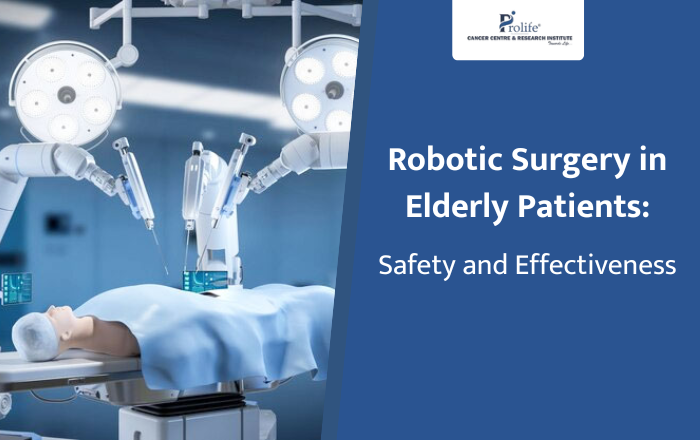How Sleep, Stress, and Diet Affect Cancer Risk
We all know that feeling—lying awake at 2 AM, mind racing with worries, reaching for comfort food the next day because we’re too exhausted to cook. Life gets busy, stress piles up, and healthy habits slip through the cracks. But here’s something that might surprise you: these everyday choices could […]
Robotic Surgery in Elderly Patients – How Safe and Effective Is It?
As people live longer, more seniors are facing surgeries for health conditions like cancer, prostate issues, or kidney problems. Years ago, these operations carried high risks for older patients. But today, medical technology has changed how surgery is done. One of the biggest changes is robotic surgery a system that helps […]


